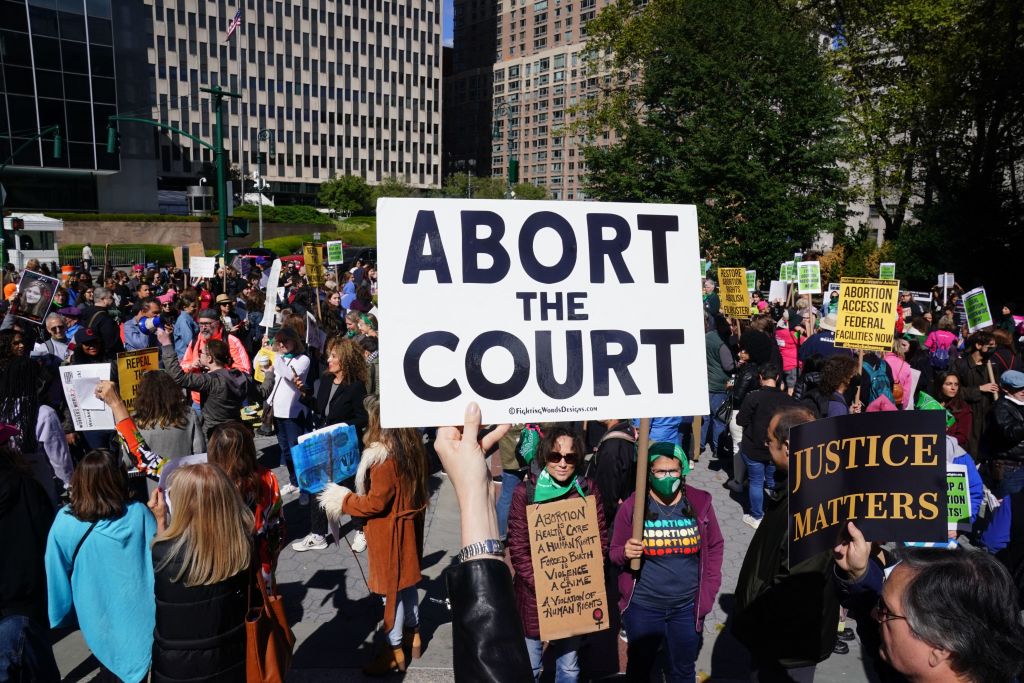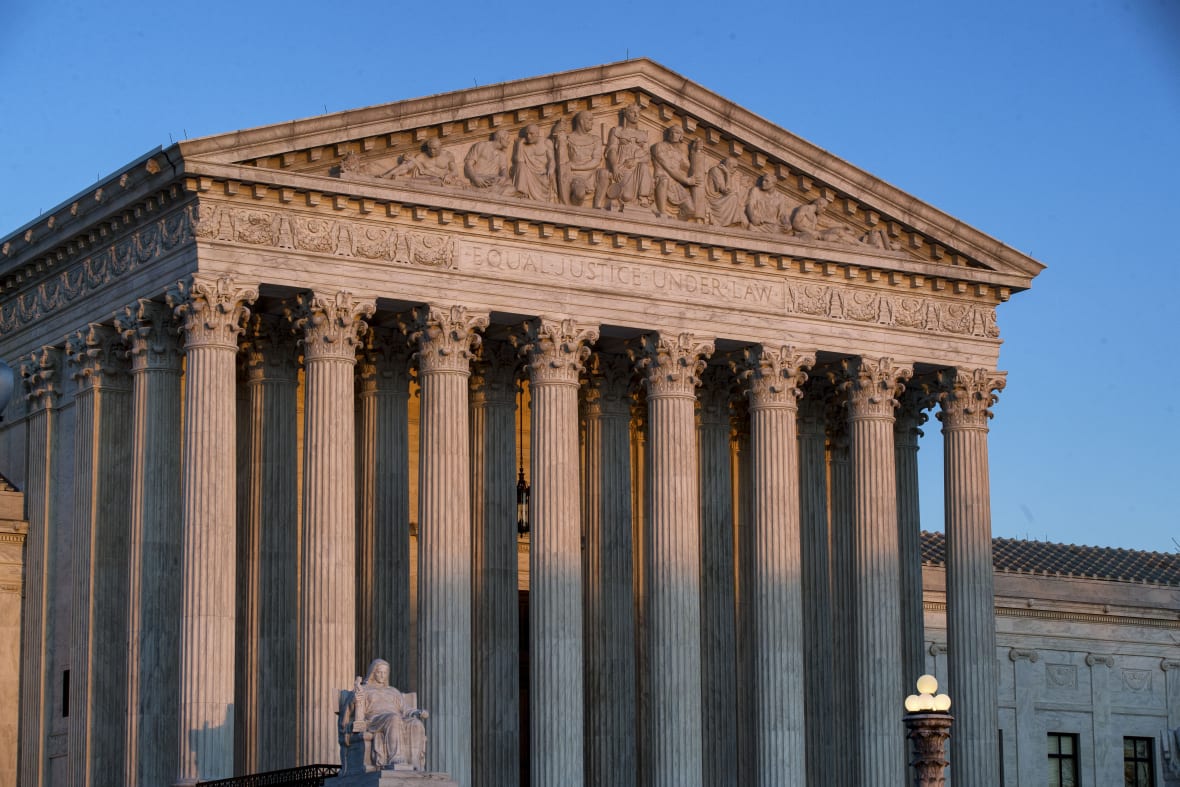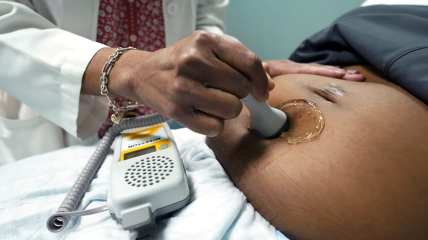North Dakota abortion ban threatens Black lives, advocates say
“When these abortion bans happen, it becomes a matter of life or death for all people – but especially Black women,” says Alencia Johnson, founder and chief impact officer at 1063 West Broad.
After another Republican-led state passed an anti-abortion bill, opponents and reproductive rights advocates say Black lives are in jeopardy.
North Dakota Governor Doug Burgum on Monday signed one of the country’s strictest anti-abortion statutes into law, which opponents and advocates say will disproportionately threaten the lives of Black pregnant women and people.

The conservative governor passed Senate Bill 2150, which only permits abortions up to six weeks’ gestation for pregnant women experiencing medical emergencies, or who are victims of incest or rape. Once the six weeks gestation period has passed, doctors can only legally perform abortions for pregnant women experiencing a medical emergency.
Governor Burgum said in a statement, “This bill clarifies and refines existing state law … and reaffirms North Dakota as a pro-life state.”
Political strategist Alencia Johnson, a former public engagement director at Planned Parenthood, told theGrio, “When these abortion bans happen, it becomes a matter of life or death for all people — but especially Black women.”
“The United States is the wealthiest nation in the world, and yet, Black women continue to die at higher rates in childbirth than any other race, no matter their socioeconomic status or their education level,” said Johnson, who is founder and Chief Impact Officer of the social impact agency, 1063 West Broad.
The U.S. healthcare system, Johnson points out, has failed Black women. She said African-American women are “subjected to inadequate health care” and the inability to manage their pregnancies.
Black women are not afforded the privilege of having an abundance of resources to assist in rearing a child, said Johnson.
“There are less opportunities for [Black women] to have childcare. We tend to be the caregiver for our entire family,” she explained.
Johnson argued that “significant” socioeconomic and educational barriers – including living in food and “climate deserts” – further burden Black women when governments limit their chance to choose whether to have an abortion.
The current abortion ban in North Dakota comes after the state’s highest court put a stop to a previous ban that the governor signed into law in 2022 following the Supreme Court’s overturning of Roe v. Wade.

According to the Associated Press, last month, the state’s Supreme Court upheld a ban on a law enacted by Governor Burgum that only permitted abortions if a pregnant woman or person was either a victim of rape or incest, or if she was experiencing life-threatening complications.
Alexis McGill Johnson, president and CEO of Planned Parenthood, told theGrio that 18 states have partial or near-total abortion bans that will impact marginalized communities.
“They are adding on layers of restrictions that are really horrific…my concern is for the people who are driving upwards of 16 hours one way just to get access to abortion care out of their state,” she said.
The reproductive rights leader said she is also concerned Black women will be “more criminalized because they are brown bodies crossing those state lines, going into different counties and being interrogated and stopped by police who have the ability to pull them over.”
This latest near-total ban takes effect immediately after Florida Governor Ron DeSantis signed a similar restrictive abortion ban into law earlier this month, as theGrio previously reported.
TheGrio is FREE on your TV via Apple TV, Amazon Fire, Roku and Android TV. Also, please download theGrio mobile apps today!


